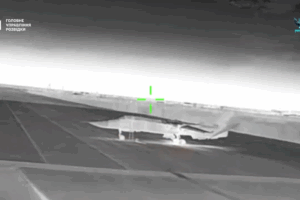
Isla Sneddon’s relatives raised several concerns with Neil Gray – including excessive waits and demand for paediatric guidelines to be treated with the same urgency as adults.
But they have told our sister title The Herald they are “angry” by the Health Secretary’s limited response and have now taken their petition to Holyrood.
The Airdrie teenager died in March, aged 17 – but she first sought help for painful breast lumps three years earlier.
She was given an urgent biopsy referral in July 2024, but it was downgraded to routine by the breast clinic because her age meant she did not meet the national guidelines to be assessed within 62 days.
Isla was only diagnosed in September 2024 after her condition deteriorated, but by that time the fast-spreading sarcoma had spread to her heart, lymph nodes and lungs. She died six months later.
On the day she died, the family were told there would be a five-hour wait before an ambulance could take her to hospital.
Isla’s aunt Avril Arnott said: “The thing that we are really, really angry about is the day that Isla died, Mark (Isla’s dad) had to lift her downstairs in her wheelchair because she was so sore, she couldn’t be touched. We had to lift her and transport her to hospital on our own.
“Isla died a few hours later and we just feel that had we not had the means to get her to hospital, she would have died in the house in agony because we had to wait five hours for an ambulance. Isla was dead before the five hours were up.”
The family raised the matter with Neil Gray, who said he could only discuss the case as a local MSP and not as Health Secretary. But following the meeting in July, they have had no updates, with Ms Arnott describing the communication as “not good enough”.
A Scottish Government review into Isla’s death has led to changes, including a commitment to conduct further tests on children presenting with cancer symptoms – but relatives warned more needed to be done to prevent unnecessary deaths.
Ms Arnott said: “At the end of the day, it’s one of those things where Isla was treated like a child. She was [told] she was hormonal. If she had been treated like an adult she might still be here today.
“This is what we’re fighting for, to make sure this doesn’t happen to another child. We want every child to have the same tests and assessments done as if they were an adult.”
She added: “We are desperate for these guidelines to be changed to try and help. Scotland has one of the highest death rates in the whole of western Europe when it comes to children under the age of 18.
“If Isla’s name saves one child, then it would be enough. We can never know for sure but if Isla had been older, we feel it could have been a different outcome. At the very least we could’ve had more time with Isla.”
Scottish Labour health spokeswoman Jackie Baillie said: “This heartbreaking case lays bare the very worst consequences of the crisis in our NHS.
“We all hope the NHS would be there for us in our hour of need, but Isla Sneddon was failed time and time again by a health service that simply could not cope.
“The SNP must listen to Isla’s family and ensure no one else is let down like she was – including properly supporting our ambulance service and carrying out the review of paediatric guidelines with the urgency needed.”
Health Secretary Neil Gray said: “I would like to express my deepest sympathies to the family of Isla Sneddon for their very sad loss.
“We published clinically refreshed Scottish referral guidelines for suspected cancer on August 6, including a new children and young person’s referral guideline. These help to ensure the right person is on the right pathway at the right time.
“We are determined to support frontline services and reduce any delays for patients – this is why we have supported the Scottish Ambulance Service (SAS) with the recruitment of 241 frontline staff last year, with SAS planning to recruit a further 456 this year.
“We know there are specific challenges, not unique to Scotland, and are in regular contact with the ambulance service and health boards to help manage pressures and ensure they are taking appropriate actions to reduce delays – including looking at improving patient flow at hospital sites.”




